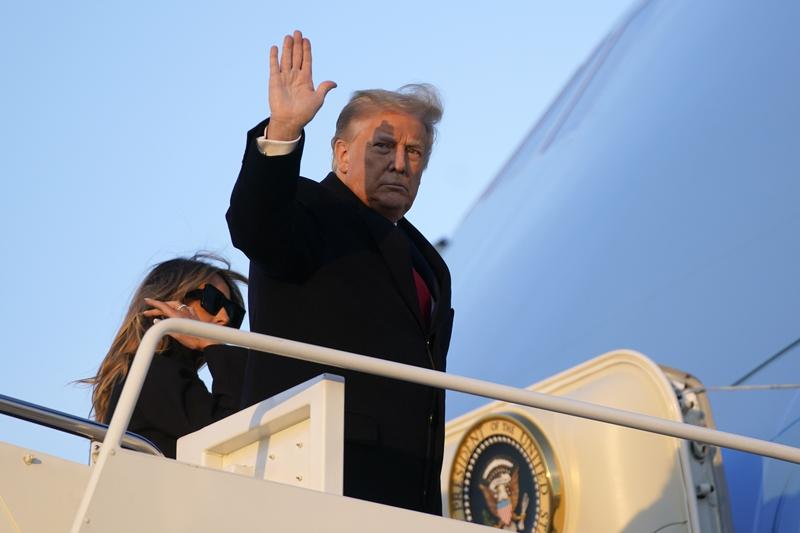 US President Donald Trump waves as he boards Air Force One at Andrews Air Force Base, Dec 23, 2020. (PHOTO / AP)
US President Donald Trump waves as he boards Air Force One at Andrews Air Force Base, Dec 23, 2020. (PHOTO / AP)
WASHINGTON - US President Donald Trump on Wednesday vetoed the National Defense Authorization Act (NDAA) for Fiscal Year 2021, despite the bill's passage in Congress by a veto-proof majority.
The presidential action followed through on Trump's threat to block the 741-billion-US-dollar annual national security legislation, which now depends on both the House and the Senate overriding the veto for the bill to be enacted.
The bill had passed the Senate in an 84-13 vote and the House in a 355-78 vote, both reaching the two-thirds majority to override a presidential veto.
The veto is so rare in history that it hasn't happened to the NDAA for nearly six consecutive decades.
The bill had passed the Senate in an 84-13 vote and the House in a 355-78 vote, both reaching the two-thirds majority to override a presidential veto
ALSO READ: US lawmakers reach deal on US$738b defense bill
"I am returning, without my approval, H.R. 6395 ... My Administration recognizes the importance of the Act to our national security," Trump wrote in a statement to Congress notifying lawmakers of his decision.
"Unfortunately, the Act fails to include critical national security measures, includes provisions that fail to respect our veterans and our military's history, and contradicts efforts by my Administration to put America first in our national security and foreign policy actions," said the president.
Trump objected the bill, which will fund the US military portfolio through September 2021, because it didn't include a provision to repeal or "make any meaningful changes" to Section 230 of the Communications Decency Act, a law that provides a legal shield to social media giants like Twitter and Facebook, which the president claimed used that section of the law to suppress conservative voices.
READ MORE: US Senate approves US$738b defense policy bill
Trump's refusal to sign the bill into law also derived from the inclusion of a provision that requires Confederate military bases to be renamed within three years.
The president, in his statement, also purported that the bill "restricts the President's ability to preserve our Nation's security by arbitrarily limiting the amount of military construction funds that can be used to respond to a national emergency," and that "numerous provisions of the Act directly contradict my Administration's foreign policy, particularly my efforts to bring our troops home."
The House is scheduled to hold the override vote Monday, with the Senate to follow Tuesday.


